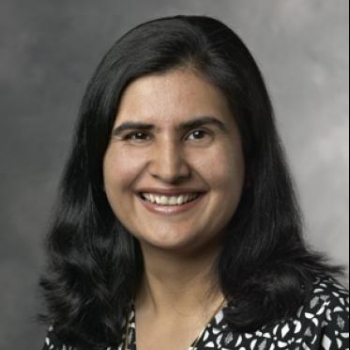Current Research and Scholarly Interests
The long-term goal of our research is to understand the fundamental mechanisms that govern and reprogram cellular fate during development, regeneration and disease. We are specifically interested in-
1.Reprogramming approaches for musculoskeletal regeneration
Discovery of induced pluripotency by Yamanaka and colleagues has revolutionized the field of regenerative medicine. Induced pluripotent stem cells (iPSC), generated by introduction of a few defined factors in a somatic cell, provide an ideal patient-specific source for disease modeling, drug discovery and cellular therapies. Clinically, these findings have uncovered the possibility of unprecedented sources for patient-autologous cells with far reaching implications in a variety of diseases. From the basic biology perspective, these findings have revealed that cell fates are inherently plastic and are dynamically regulated. Our research is geared towards applying reprogramming approaches towards musculoskeletal regeneration especially cartilage regeneration that remains an unmet medical need.
2.Mechanisms underlying stem cell self-renewal, differentiation and cancer
We are interested in understanding the role of the extracellular matrix in regulating stem cell self-renewal and differentiation, and how this regulation goes awry in cancer. Understanding the acquisition and maintenance of the ‘differentiated’ state can provide important clues regarding the ‘dedifferentiation’ associated with cancer.
3.Epigenetic regulation in development and disease
DNA methylation is an epigenetic mark associated with long-term gene silencing during early development and lineage specification. The other side of the coin i.e. DNA demethylation has received scant attention over the years mainly due to the inability to identify enzymes that could mediate the removal of the methylation marks. Recent studies by our group and others have uncovered novel DNA repair based DNA demethylation pathways. Another exciting discovery is that of the ‘sixth base’ in DNA i.e. hydroxylation of methylated cytosines (5mC) by enzymes leading to ‘5hmC’ that is present in many tissues. The role and effect of 5hmC on 5mC turnover and hence DNA demethylation, on gene expression per se and stem cell fate and differentiation is a topic of vigorous interest. We are exploring the role of these novel DNA demethylation regulators in cartilage development, regeneration and disease. Our recent studies have uncovered a dysregulation of the DNA demethylation pathways in the widely prevalent age-associated disorder, Osteoarthritis. We are currently investigating the mechanistic details of these epigenetic pathways in Osteoarthritis.


